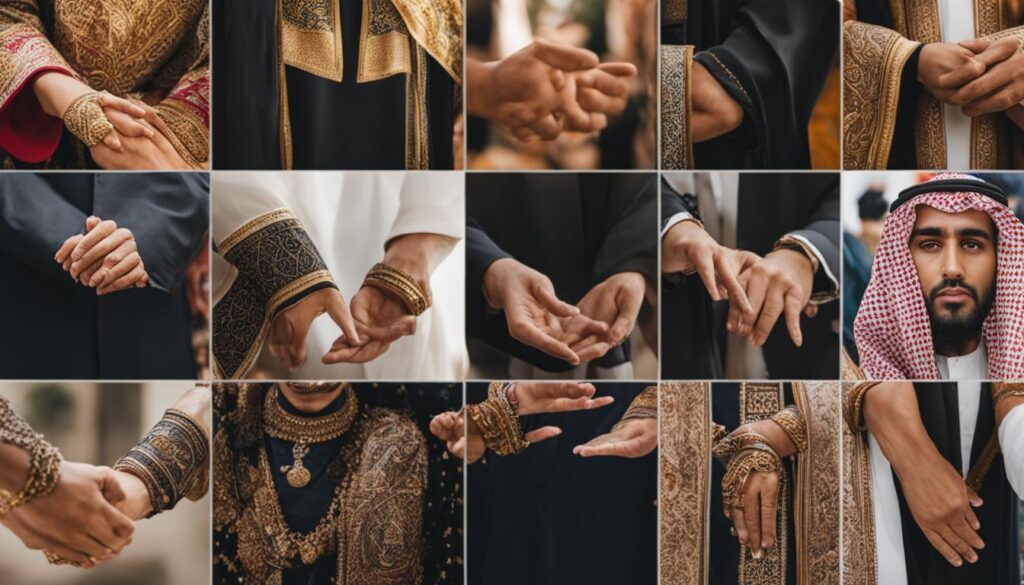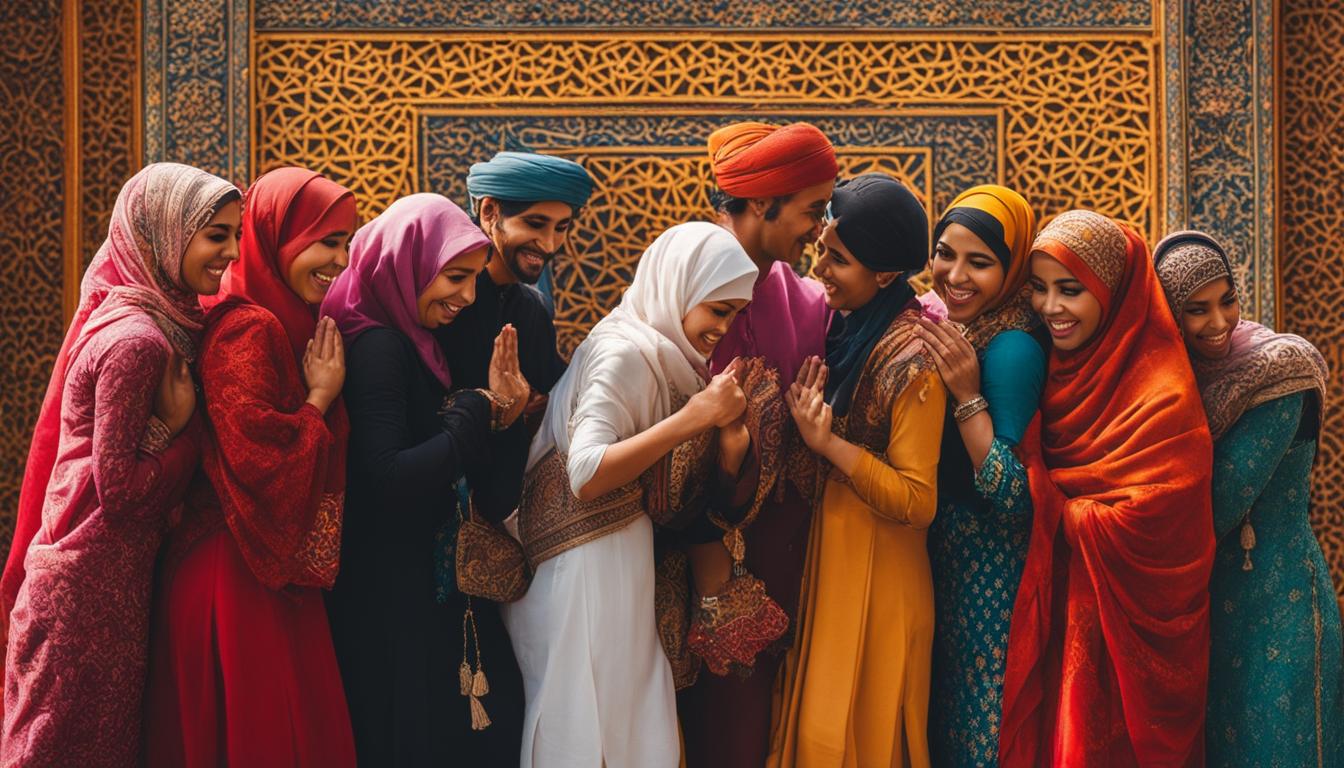Saying goodbye in Muslim cultures requires an understanding of etiquette and cultural nuances. It is important to know the proper way to bid farewell in these traditions. In this guide, we will explore the various ways to say goodbye in Muslim cultures, particularly focusing on the Islamic expressions and farewell phrases commonly used.
Key Takeaways:
- Knowing the right phrases and expressions for saying goodbye in Muslim cultures is essential for navigating social situations and showing respect.
- In Arabic cultures, there are several ways to say goodbye, such as “ma’a salama” and “bisalama,” which mean “goodbye.”
- Other phrases like “bkhatrak” and “Allah ma’ak” are used in Levantine Arabic and express leaving with acceptance and wishing someone to be accompanied by God.
- Informal ways to say goodbye, like “bye” and “yalla bye,” have been adapted from English.
- Formal expressions for saying goodbye exist in Modern Standard Arabic, such as “wada’an” and “ela al lika’a.”
Understanding these cultural nuances in Muslim cultures will help you bid farewell appropriately and appreciate the diverse traditions within these communities.
Goodbye in Spoken Arabic: Learn the Common Phrases
In spoken Arabic, there are various ways to say goodbye depending on the region and dialect. One of the most common phrases used to bid farewell is “ma’a salama,” which simply means “goodbye” and is widely used in everyday life. Another commonly used phrase is “bisalama,” which has the same meaning and is particularly used in countries like Tunisia and Morocco.
In Levantine Arabic, a popular farewell phrase is “bkhatrak,” which carries the meaning of leaving with acceptance. Additionally, the phrase “Allah ma’ak” is frequently used to express the wish for someone to be accompanied by God. These expressions emphasize goodwill and are often used when parting ways in social situations.
Informal ways of saying goodbye in Arabic include borrowed phrases from English, such as “bye” and “yalla bye.” These phrases are commonly used in casual settings with friends and acquaintances. It’s worth noting that the usage of certain Arabic farewell phrases may require conjugation based on the gender and number of the person being addressed.
Exploring Regional Variations
It’s important to understand that different Arabic-speaking regions have their own unique ways of saying goodbye. For example, in Egyptian Arabic, variations of phrases like “bshofak ba’dan” (see you later) and “bshofak bokra” (see you tomorrow) are commonly used. These variations showcase how language evolves and adapts within different cultural contexts.
When navigating social situations in Arabic-speaking countries, it is always helpful to have a basic understanding of the common phrases used to bid farewell. By using appropriate expressions, you can show respect and appreciation for the local culture while forging connections and building relationships.
Goodbye in Modern Standard Arabic: Formal Expressions
In formal settings and literary contexts, Modern Standard Arabic (MSA) is the formal variety of Arabic commonly used. While not as prevalent in day-to-day conversation, it is still important to understand formal expressions for saying goodbye in MSA.

Conclusion
Saying goodbye in Muslim cultures requires an understanding of the specific customs and etiquette that prevail in these societies. Within Arabic cultures, several phrases and expressions are commonly used to bid farewell. For example, “ma’a salama” and “bisalama” are frequently employed in everyday conversations, while “bkhatrak” and “Allah ma’ak” express leaving with acceptance and best wishes in Levantine Arabic.
Informal ways of saying goodbye, such as “bye” and “yalla bye,” have also been adapted from English and are used in casual settings among friends. In formal contexts, Modern Standard Arabic offers expressions like “wada’an” and “ela al lika’a” to gracefully part ways. However, it is important to note that Modern Standard Arabic is primarily used in literature, news broadcasts, and more formal scenarios.
Understanding the cultural nuances of bidding farewell in different Arab cultures is essential for showing respect and navigating social situations. By familiarizing yourself with the various phrases and customs, you can appreciate the richness and diversity of Muslim cultures when it comes to saying goodbye.
FAQ
What are some common phrases for saying goodbye in Muslim cultures?
In Arabic cultures, common phrases for goodbye include “ma’a salama” and “bisalama.”
Are there informal ways to say goodbye in Arabic?
Yes, informal ways to say goodbye in Arabic include “bye” and “yalla bye,” which have been borrowed from English.
How do you say goodbye in spoken Arabic?
In spoken Arabic, phrases like “ma’a salama” and “bisalama” are commonly used to say goodbye.
What are some formal expressions for saying goodbye in Modern Standard Arabic?
Formal expressions for goodbye in Modern Standard Arabic include “wada’an” and “ela al lika’a.”
Are there variations in how goodbye is said in different Arab cultures?
Yes, different Arab cultures may have their own unique expressions and customs for saying goodbye.

